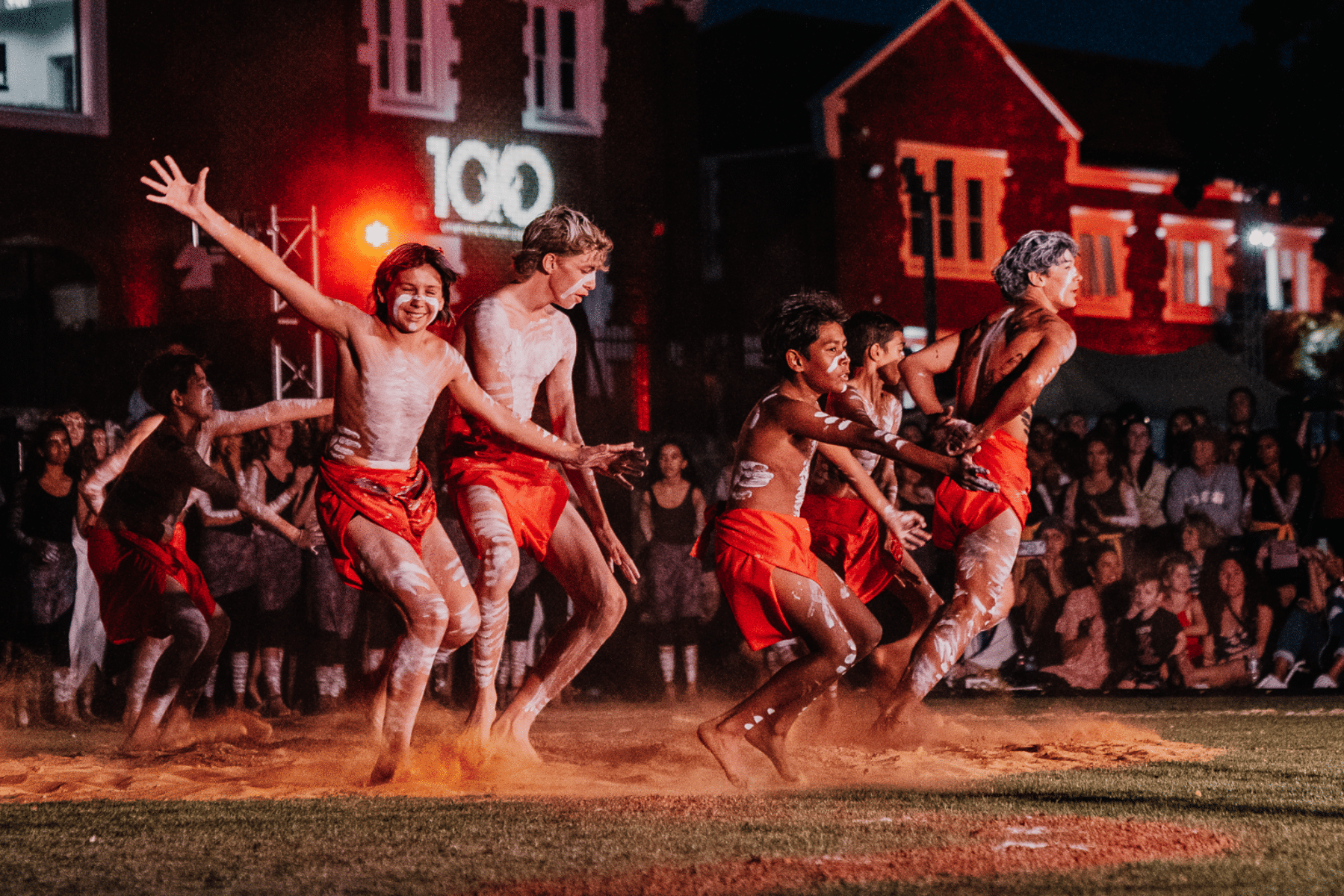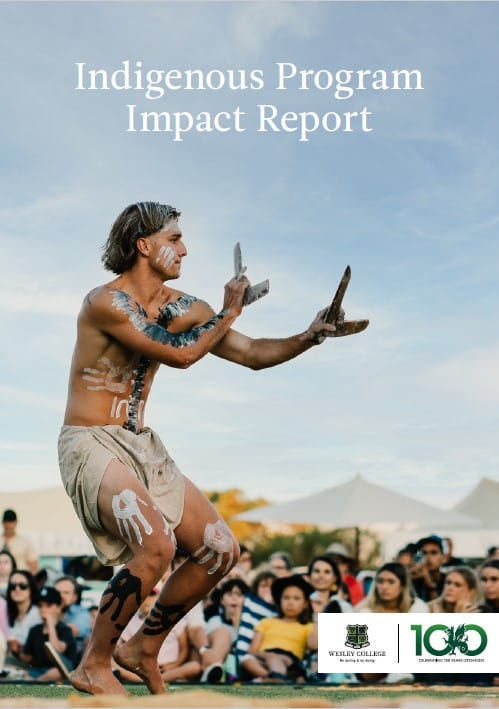The Moorditj Mob is Wesley College’s Aboriginal and Torres Strait Islander Program. The program is an important part of the College’s culture and fosters great pride within the Wesley community.
Wesley has always opened its doors to Indigenous students. However, Wesley’s Aboriginal and Torres Strait Islander Program – more commonly referred to as the Moorditj Mob – officially began in 2006 when the College introduced five dedicated bursaries for Indigenous students living in regional and remote Western Australia.
Since then, the program has grown significantly, with around 40 students participating at any given time. Their bursaries and scholarships are supported through the generosity of philanthropic bodies and our community donors.

The Moorditj Mob dance the Nyumbi.
Moorditj is a Nyoongar word meaning ‘great, strong and good’. In 2006, it was hoped that the educational experience of the Moorditj Mob would infiltrate the local communities where the students came from, encouraging others to see the importance of a high-quality education. Nearly 20 years later, the Moorditj Mob has become almost synonymous with best practice, with our students influencing thousands of other students around Australia. The Moorditj Mob also play a significant role in Wesley’s Reconciliation Action Plan.
Students are expected to celebrate their culture and to share it with others. As well as all the usual elements of a Wesley education, the boys learn traditional dance, didgeridoo-playing, and Noongar language, as well as working with local elders.
The Moorditj Mob makes dozens of appearances each year to share their culture with others, both at Wesley College events and also within the wider community. The group has performed in front of an audience of 52,000 at the Perth International Arts Festival, celebrated NAIDOC week at over 30 schools, danced in hospitals, town halls, Government House, concert halls and Optus Stadium.
The Moorditj Mob has even travelled internationally, to the World Indigenous Peoples’ Conference in Education in Honolulu, Hawaii. They were the only group to be asked to perform at both the opening and closing ceremonies.

Students are encouraged to connect with their culture.
